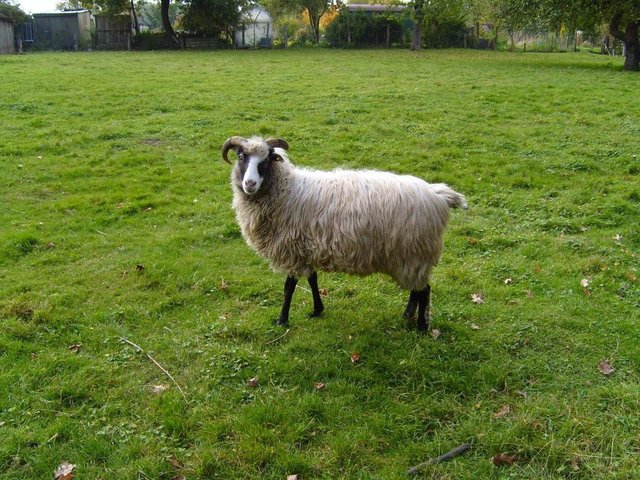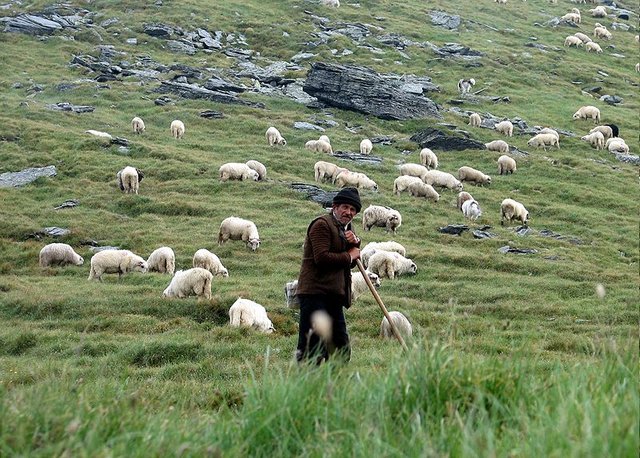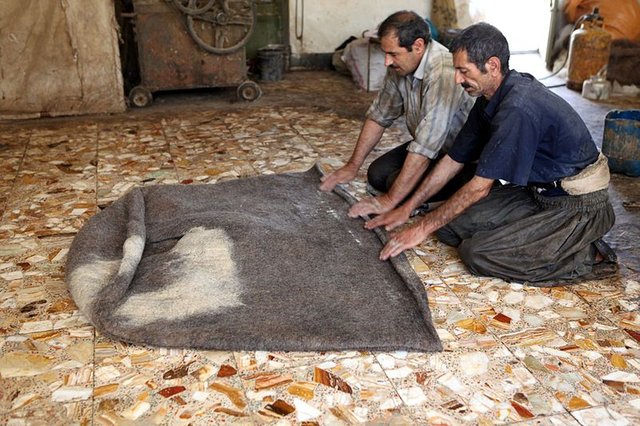A Quick Linguistic History of Wool (with much omitted!)

Image: A Sheep, by Titus Tscharntke
Most of us understand that language changes over long periods of time, but did you know linguists can trace modern words all the way back to their roots in extinct languages that were never even written down? It’s true: thousands of words from proto-languages have been determined by historical linguists, via comparative and computational methods. These ancestors of modern languages offer us a glimpse into the prehistory of our vocabulary, enriching our understanding of human prehistory.
Here I present a some information into the ancient origins of the English word wool, and I call out some of its cousins in other languages. Why? Because this is fascinating, and because it might inspire others to share their own enthusiasm toward in historical linguistics here on steemit. Obviously, this is a short post, and an infinity of information is omitted.
The Word Wool: Origins in Proto-Indo-European
Six thousand years ago, ancient sheep flocks and their shepherds roamed the steppes between the Ural Mountains and the Black Sea. In that time and place, men, women and children used possibly the oldest linguistic ancestor of our modern word wool: these rugged pastoralists called both their woven wool and their felt HwlHn, Hwel, or Hwol. Today we call the language these people spoke Proto-Indo-European. It is a theoretical language thought to approximate the mother tongue of a majority of modern languages, from Hindi to Russian, Greek to Spanish and English.
Click here to view a tree of languages descending for Proto-Indo-European!

Image: A modern day shepherd, by friend of Darwinek, Wikipedia commons
Like all words, HwlHn mutated though the centuries as it travelled over the landscape, maturing within different groups; integrating within emerging new languages. One early mutation of HwlHn was wele: this word eventually became the Germanic wulno, which is the root of the Old English wull (sound familiar?). Wele is also the root of the Celtic wlanā, which is the root of the Welch gwlanen, and then the Middle English flanen (c. 1400) – and flanen is the root of the modern English word flannel.

Image: Modern dudes wearing flannel. Photo by Ranveig
HwlHn is also the ancient ancestor of multiple words in Greek, Germanic, Baltic, and Slavic, language families that have meanings similar to ‘press’, ‘roll’, and ‘beat’. To those who know wool, these are familiar terms associated with manufacture of felt, which is traditionally made by wetting and pressing/smashing/matting together wool fibers.

Image: Making a felt robe for Bakhtiari shepherds, by ninara
When we say this word, ‘wool’, we are leaving the freshest footstep in a verbal lineage; a dense branching of terms connected to that original root word, HwlHn. Indeed, this is the case for anyone using any of the derivative terms mentioned above. From humble and pastoral origins came so much lingual diversity; from one word among one ancient culture of nomadic shepherds the shape of the future as we know it expanded.
Information pulled from:
1. https://www.amazon.com/Horse-Wheel-Language-Bronze-Age-Eurasian/dp/069114818X
2. https://www.quora.com/Whats-the-origin-of-the-word-flannel
All images used listed as public domain.
This is typically a subject that I'm ashamed to say I never took too seriously in school growing up; but, have become more interested in the roots of language in more recent years. Great article! BY FAR the most fascinating lesson about 'wull' (haha!) I've ever read!
Look forward to learning more from you in the future, @deeallen!
Downvoting a post can decrease pending rewards and make it less visible. Common reasons:
Submit
Hello @thedarkestplum. Thanks very much your kind feedback. I would never have thougjt this topic would garner interest, but it looks like people are genuinely interested. All I can say is that I have never been so inspired to continue writing, and I'm wirking on several new articles right now on various subjexts in the sciences. What an honor. I appreciate you!
Downvoting a post can decrease pending rewards and make it less visible. Common reasons:
Submit
languages was never my forte at school..only just got Spanish! - but this article did interest me in where certain words come from and how the evolve- thanks
Downvoting a post can decrease pending rewards and make it less visible. Common reasons:
Submit
Hey! This is really interesting. I am a linguistics student currently on an integrated masters degree so this is right up my street. Really interesting stuff, I hope this gets the recognition it deserves!
Downvoting a post can decrease pending rewards and make it less visible. Common reasons:
Submit
Hey I appreciate that very much. I work for a wool company and have also been into studying PIE for a long time. I hope you plan to post on your topics of study!
Downvoting a post can decrease pending rewards and make it less visible. Common reasons:
Submit
Downvoting a post can decrease pending rewards and make it less visible. Common reasons:
Submit
Check out my experience at the Big Sandy machine gun shootout.
https://steemit.com/guns/@steve-mcclair/the-big-sandy-shoot-festival-for-machine-guns-heavy-artillery-and-gun-enthusiasts
Downvoting a post can decrease pending rewards and make it less visible. Common reasons:
Submit
Comments were hidden due to low ratings.